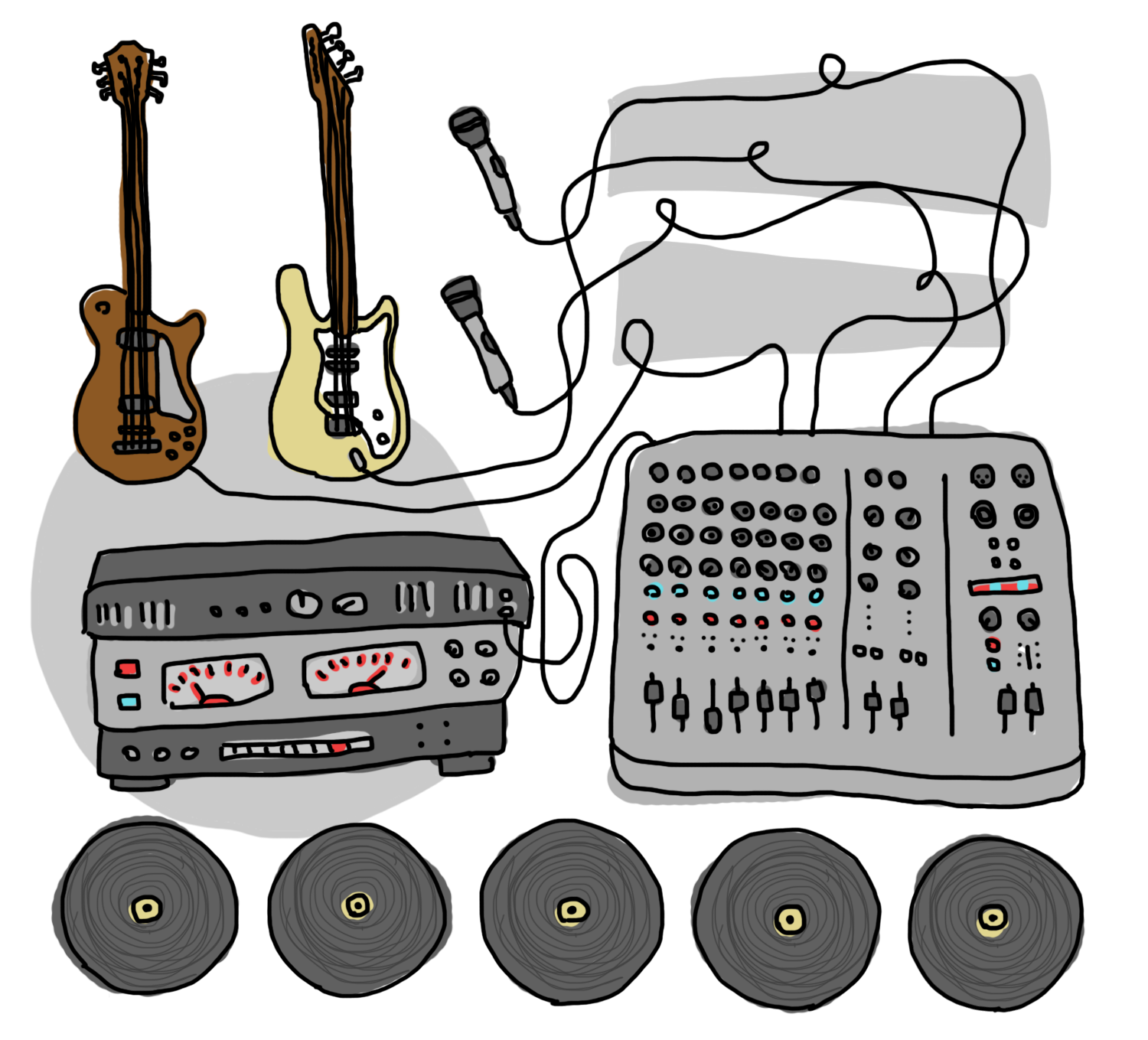A 10-step guideline for those entering the recording world
If you’re a musician looking to record your first EP album, here is some advice that could benefit you. I’ve been there and have made many mistakes that I want to share so you can avoid making them yourself. This is a general guide aimed at those who are entering the recording world.
1. Write lots of songs
Get into the habit of writing everyday. Even though most of your songs will get tossed, you’ll come across a few gems worth working on. Play those songs to your band, entourage or the public as a busker. See what the reaction is.
2. Write a band agreement
The agreement will ensure everyone is on the same page before you spend any time or money on the project. Make sure these elements are crystal clear with all parties before moving forward: who wrote the song and who owns the copyright to it, who owns the copyright to the sound recordings, who will pay for the recordings, mixing and mastering, what the credits will read on the website and physical albums, and the division of royalties.
3. Practice, practice, practice
It’s cliché because it’s true. Your band needs to be confident enough with the songs you want to record for your EP. Make sure everyone knows exactly what their parts are. Arrange the songs so there’s a change in dynamics, and don’t overplay. I sang, played guitar, bass and synth on my band’s first EP, and it was a bit messy because I was riffing too much on each instrument. Let each instrument take turns in the lead and rhythm parts.
4. Setting up for recording
Figure out which electronic device or recording software you will use to record. I recommend “Reaper” software. Once you’re recording, every signal coming into your computer should not be over -9 decibels. Anything louder than that can cause clipping. Make sure to have a metronome set for each song, to ensure a professional sound recording.
5. Recording instruments
For drums, I suggest going to a studio and having a professional help with this—it will make an enormous difference on the overall sound of the recording. Drums are the most technically challenging instrument to record. For bass, having fresh strings are a must. A real amp is preferable over a simulation. Use a compressor placed between the guitar or bass and amp to get a constant signal level. For synthesizers, use a compressor placed between the synth and the audio recording interface.
6. Recording vocals
Rent a few mics to see which one suits the singer’s voice best. Next, put together a vocal booth, either by building one or using mattresses/moving blankets or duvets. You don’t want to hear any of the room’s reverberation in the mic. Have three sides that block the outside sound and sing towards the open area. Suppress the sound area above you, as sound will bounce off the ceiling. Use a pop filter and place yourself about a foot away from the mic.
7. Comping
Record four takes of each instrument and even more for vocals. Comping means using the best of each take to create the best version of the song. Isolate each individual instrument and play it with the metronome. Listen to the track in eight bar sections and use the take most closely played to the metronome. For vocals, you want to listen to the vocal track much louder than the other instruments. What you’re listening for is the right pitch and emotional delivery.
8. Mixing and mastering
I highly recommend finding professional engineers to mix and master your EP for you. Be ready to spend between $600 and $1500 on mixing and make sure you get three full revisions of each song included in the price. When you receive the first mix, listen to it on a variety of speakers and headphones, and write a list of what you want changed in each song. An agreement or contract here is vital to protect your band and the engineer from any misunderstanding or fraud. Sign a work-for-hire agreement, which states that the engineer shall not receive any royalties from the music, and also, that they do not own the sound recordings. For mastering, expect to spend between $200 and $500. The goal of mastering is to get each song at the same volume and as loud as they can be.
9. Release
Book a venue for your EP release show a few months in advance, on a Saturday night if possible. You want to have as many people present at your release, as well as press, bloggers and music reviewers. Hire someone who can take good pictures, and find an opening act that will warm up the crowd before you headline. Post your music on Bandcamp the day of the show, and have download coupons ready to sell to your fans, friends and family. Typically, an EP goes for $3 to $5, so you can include this in the cover charge—when people pay $5 to see your show, they get a download coupon for your EP.
10. Promote
Create an electronic press kit full of professional band photos, logos, biography information, recordings, stage plot and contact/booking info. Send it to radio stations, music review sites and booking agents. Aim to book one or two shows a month.




